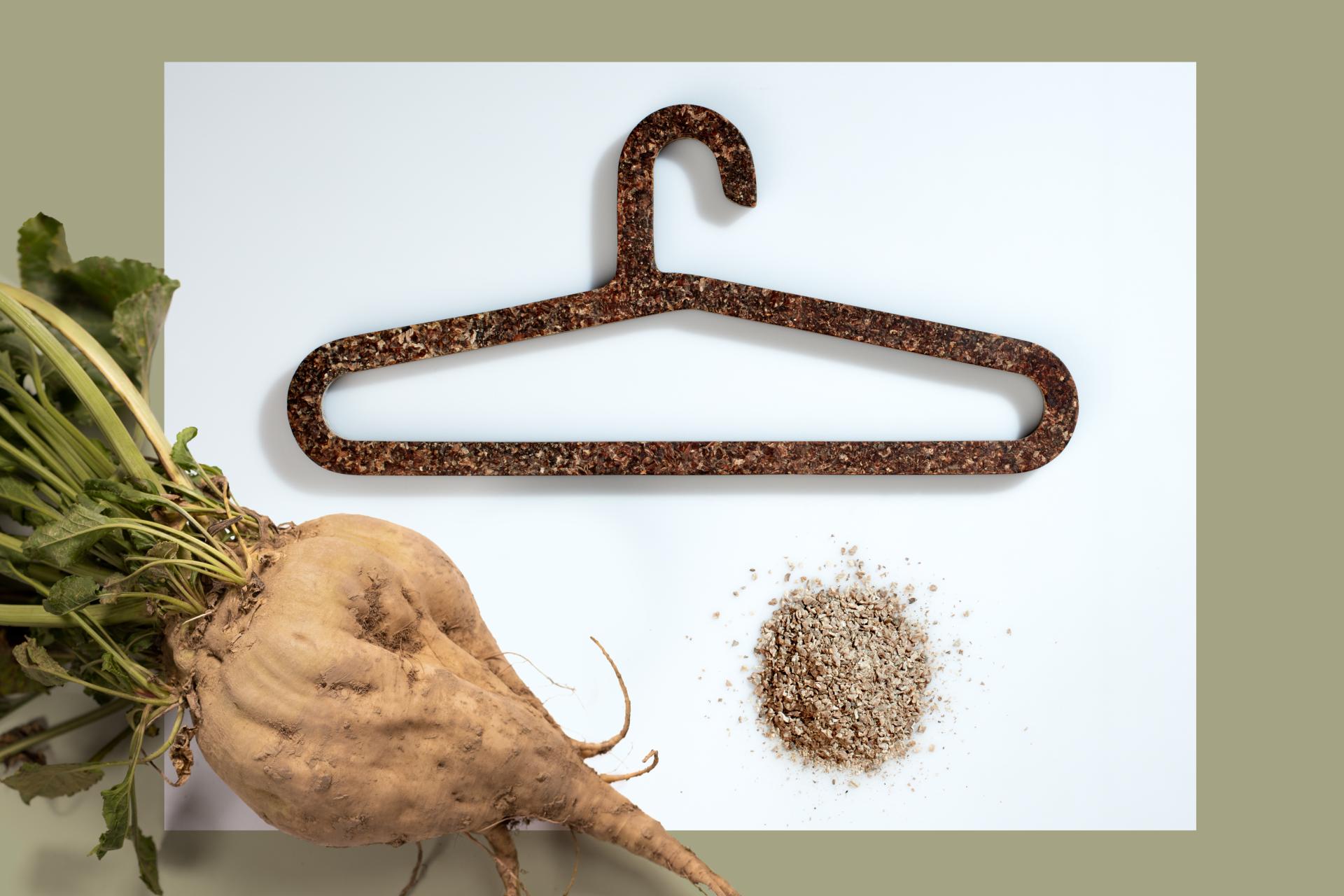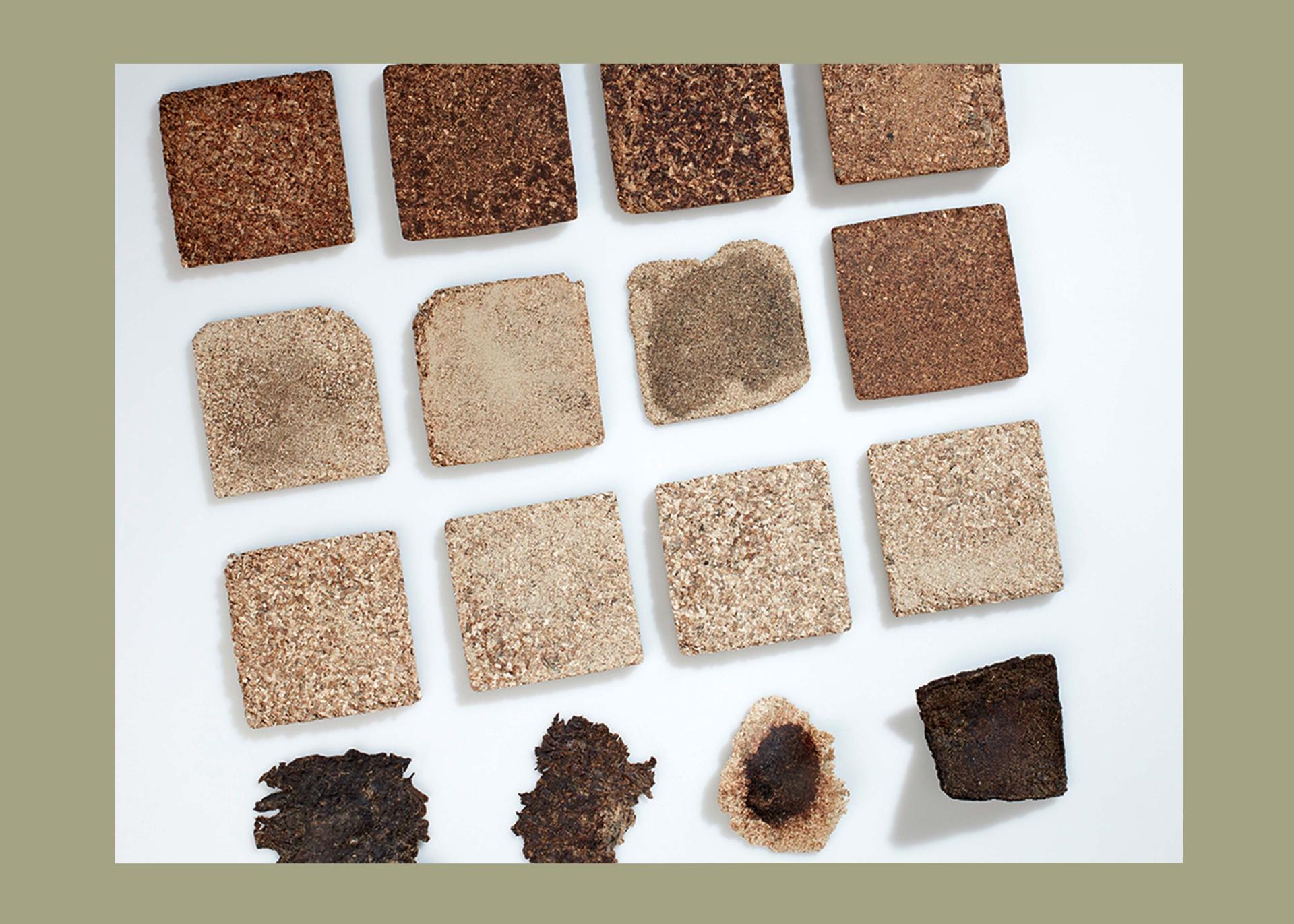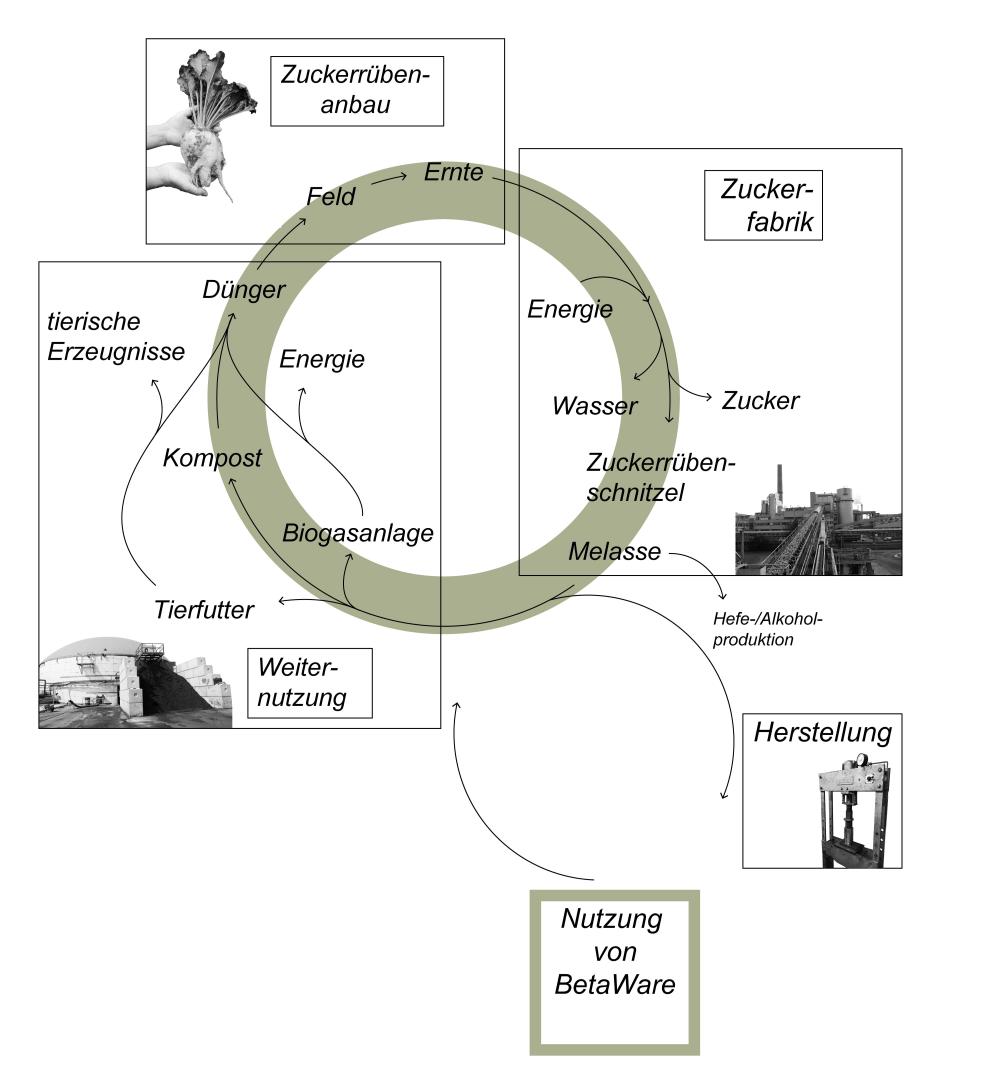BetaWare
Basic information
Project Title
BetaWare
Full project title
Sustainable material cultures based on the example of the sugar beet and the design of potential pro
Category
Shaping a circular industrial ecosystem and supporting life-cycle thinking
Project Description
BetaWare is a material made from sugar beet cellulose and molasses, which is vegan and compostable. Sugar beet cellulose, water and molasses are by-products of sugar production. By-products accumulate during production processes and are not the purpose of processing, but can find their own usage in an intermediate use. Through an intermediate use, the material can be returned to the cycle after use. No additional cultivation areas are used for the consumption of goods.
Geographical Scope
Regional
Project Region
Germany
Urban or rural issues
Mainly rural
Physical or other transformations
It refers to other types of transformations (soft investment)
EU Programme or fund
No
Description of the project
Summary
BetaWare is a material made from sugar beet cellulose and molasses, which is vegan and compostable. Sugar beet cellulose, water and molasses are by-products of sugar production. By-products accumulate during production processes and are not the purpose of processing, but can find their own usage in an intermediate use. Through an intermediate use, the material can be returned to the cycle after use. No additional cultivation areas are used for the consumption of goods, but material that already exists is processed into products.
Key objectives for sustainability
Using by products and have more options to use by materials of agriculture and other industries is very important to design a resilient economy.
Key objectives for aesthetics and quality
Useres must be able to deal with perishable materials. If it is honestly compostable, it can't be that durable. We as Designers have to teach reasons and how to care. On top of that a simple form and versatile use invites a use as long as the product exists. After use, it can be returned to a natural cycle or recycled for energy in the biogas plant.
Key objectives for inclusion
The sale and use of by-products supports agriculture. Sugar beet cellulose is affordable and can be pressed by simple processes and used as a product with a medium-long service life. The concept can be transferred to other by-products.
How Citizens benefit
To put honestly compostable materials into a context of use of appropriate duration, designers can learn and choose requirements for materiality. We have to take responsibility of our impact of our consumption on the environment.
Physical or other transformations
It refers to other types of transformations (soft investment)
Innovative character
The material is honestly compostable. It is vegan and a by-product. So no additional cultivation areas are used for the consumption of goods. The material can replace other materials made out of cellulose. It can be pressed in to plates or directly in to form, so there is no offcuts.
Disciplines/knowledge reflected
For the work, several people were interviewed from agriculture to sugar producers to designers and producers and machine manufacturers. An interdisciplinary exchange is important for good solutions.
How stakeholders are engaged
Sugar beet is a regional product, sugar can be grown in germany and europe, but is displaced by cane sugar due to market regulations. Although sugar beets can be processed into sugar regionally and thus with fewer delivery routes. By strengthening regional food production, a more resilient system for our food can be strengthened. The use of by-products supports this. There is also a need to close loops in our consumption. BetaWare is a vegan and renewable material that can be easily processed and can replace materials made of wood cellulose.
Global challenges
Resilient systems for a global world.
Learning transferred to other parties
You can search for by-products in other industries, like waste, energy, forestry or food. So resilient raw material sources can be designed.
Keywords
Material
ressources
circular economy
by-products
sustainability



